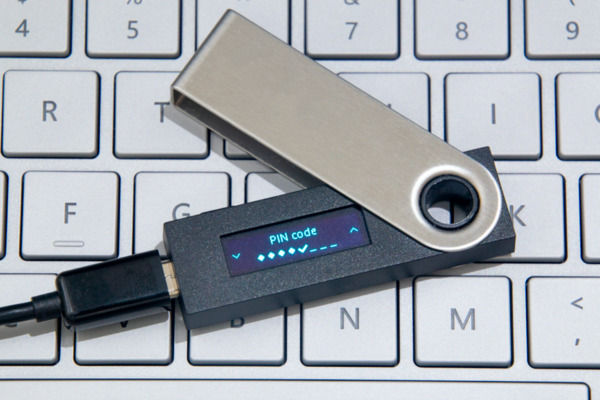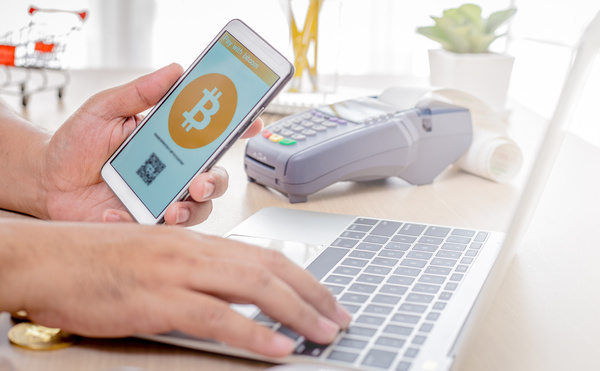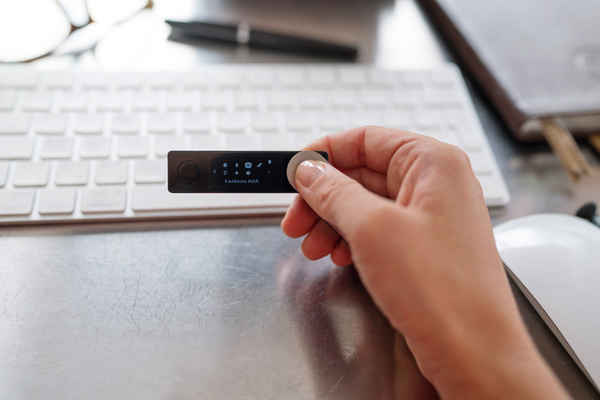
Securely storing your cryptocurrency investments can be challenging for first-time digital asset investors.
To help you with this aspect of blockchain investing, we have created a beginner’s guide on how to securely store your digital assets.
Securely Storing Crypto: A Challenge for First-Time Bitcoin Investors
One of the challenges for new digital asset investors is learning how to securely store their investments. We’ve grown up relying on banks to safely store our money and online brokerages to safeguard our investments. In the digital asset market, however, you need to take ownership of your investments to securely store.
There is a common saying in the digital asset space:
“Not your keys, not your coins.”
The saying refers to holding the private keys of your crypto wallets as opposed to storing your digital assets with a third-party custodian, such as an exchange or a custodial wallet. While self custody provides you with complete control over your funds, it also comes with the responsibility of knowing exactly how to securely store digital assets.
Losing access to your coins by losing your wallet recovery details or by falling for a phishing scam or crypto-stealing malware are real threats for new bitcoin investors, especially to those who choose to self-custody their coins.
Educating yourself on the available crypto storage options and finding one that is right for you is essential for newcomers in the digital asset space.
Types of Crypto Storage Solutions

Here’s a list of possible digital asset storage solutions.
Online Storage
An online wallet could be provided by a local exchange, an overseas exchange, or a company that offers yield on digital assets. An example would be GreenAddress.
Pros:
- Easy to access from anywhere in the world with an Internet connection.
- Easy to learn how to use.
- If you forget your password recovering access to your cryptocurrency could still be possible if you are able to meet the companies requirements for account recovery.
Cons:
- Your account could be hacked by a criminal or a malicious staff member.
- The exchange could be hacked.
- The company could disappear with your coins.
- The company could go bankrupt.
Software Wallet
A software wallet is a crypto wallet that you can access on your phone, tablet, or computer. Examples would be Trust Wallet, Edge, and Jaxx.
Pros:
- Easy to access and as portable as your device.
- You typically own your keys and thus your coins.
Cons:
- Risk of your device being lost, damaged, or stolen.
- Risk of your device being hacked or corrupted by a virus.
Hardware Wallet
A hardware wallet is a physical device used to store your private keys. Examples would be Ledger, KeepKey, and Trezor.
Pros:
- Not connected to the internet, mitigating your risk of being hacked or getting a virus.
- Portable.
- You own your keys and thus your coins.
Cons:
- Risk of you forgetting how to access it.
- Chance of hardware failure.
Paper Wallet
A piece of paper that has a public key and a private key printed on it.
Pros:
- Zero risk of technology failure.
- Portable.
- You own your keys, and thus your coins.
Cons:
- A piece of paper, if not stored safely, can easily be lost, destroyed, or stolen.
Best Way to Store Bitcoin and Other Cryptocurrency
The best way to store your cryptocurrency depends on your unique circumstances.
Storing your cryptocurrencies in a hardware wallet is the best from a security and financial sovereignty point of view.
However, if you are always traveling this isn’t very practical unless these are assets you are planning on never accessing. Moreover, if you are only buying $100 of bitcoin, can you justify spending the same amount on a hardware wallet?
Alternatively, you could choose to hold your funds with a third-party custody provider for ease of use and convenience.
However, not all custodians are created equal. Therefore, it’s important to research your chosen provider before trusting them with your funds (and private keys).
- Make sure you thoroughly research where they are registered and licensed.
- Check how many years they have been in operation.
- Have they ever been hacked, and if so how did they reimburse their customers, if they did?
- Are the members of their team public? Are they well known?
- If they claim to offer insurance, read the fine print.
Digital Asset Storage Security Tips

2FA
If you leave any coins on an online service, make sure you use 2FA. Free services like Google Authenticator or Authy mean if someone manages to gain access to your account via your log-in details, they won’t be able to access your funds without your two-factor authenticator code.
Device Security
Passwords on all your devices and accounts should be longer than twelve characters and use uppercase, lowercase, numbers, and special characters to make hacking them as hard as possible. Use a different password for every account, it may be difficult to remember them all but it will save you grief in the long run.
Using a VPN and keeping your antivirus and malware software up to date is also critical for your security. Using public Wi-Fi at an airport or your local coffee shop or library might be convenient but is also dangerous from a security perspective. The more public the Wi-Fi, the higher the risk of someone hacking it.
Don’t Become A Target
Being public about how much cryptocurrency you have may gain you followers, but it could also make you a target. The fewer people know about how much you have invested or how much that investment has grown, the less attractive a target you are.
Future Planning
The options for passing on your bitcoin to others in case of your death or impairment are still somewhat limited but it is something that you should have a plan for. Your loved ones should be able to access your accounts by proving your death as they would access your bank accounts. If you use a paper wallet or hardware wallet, they will need to know how to access these.
Don’t Buy Second-Hand Hardware Wallets
Don’t buy a second-hand hardware wallet, and don’t buy from a random person online even if they claim it’s new. Only buy a hardware wallet directly from the manufacturer or you could end up with a device someone else has the private keys to. Once you’ve transferred your digital assets to your device, store them safely and keep the firmware up to date.
Related Articles:
- Best Bitcoin and Crypto Custody Providers, Rated and Reviewed for 2021
- Best Bitcoin Books for 2021 (with Reader Ratings)
Subscribe to Bitcoin Market Journal to stay up to date with everything that matters for blockchain investors.

